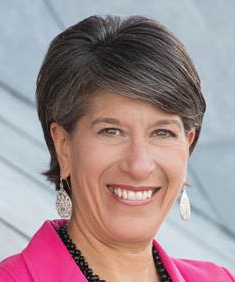According to Dr. Kathy Koch, educator, founder of Celebrate Kids and author of "8 Great Smarts," every person, young and old, needs to know they are smart.
"Smart is a powerful word," says Koch. "When children discover that they are smart, they are more willing to engage with all of life, including school. Children who don't think of themselves as smart don't tend to engage. They say to themselves, 'I'm not smart enough, so studying won't help.'
"Children who believe deep down they have a brain and they are supposed to use it are children who will have more joy and purpose, and their lives are more vibrant."
When Koch taught second grade and realized some of her children were already classifying themselves as not smart, it concerned her. Even some of the parents doubted their child's ability to do well at a very early age.
"The wrong question is, 'Am I smart?'" Koch says. "Stupid is a choice. We were not created that way. Early on in my work, I discovered research conducted by psychologist Howard Gardner from Harvard University, who found that all of us have one brain divided into eight parts, and there are eight different ways of being smart. The better question is, 'How am I smart?'"
Here are her Eight Different Ways of Being Smart:
* Words: Power of language – talking
* Logic: Power of questions – asking
* Picture: Power of observation – seeing
* Music: Power of sound and music – hearing
* Body: Power of movement – doing
* Nature: Power of patterns – collecting
* People: Power of people – relating
* Self: Power of quiet - reflecting
"There are many children who are smart in ways that don't make school easier," Koch says. "For example, if your child is self-smart or nature-smart, the classroom experience could be challenging for them.
"For a child who is picture-smart, when his teacher describes a historical reality, he pictures it in his mind. Many children will say, 'You mean because I draw well, I am smart? I thought I was just a good drawer.'"
Children who are athletic, who can dance or can kick the ball through the goalpost with both feet are body-smart. Children who are music-smart aren't just talented, they are smart.
When you are people-smart, you think with other people. You brainstorm and network well. Those who are people-smart read body language well. For someone who is word-smart, words are a big part of their existence. They can gossip and tease well and often arrange conversations so they have the last word. They have to be taught to be self-controlled.
"I want to equip parents to recognize that their children do what they do because of how they are smart," Koch says. "Then I can help guide them to help their children do what they do well. Children who know they are smart are more likely to flourish."
In November, Koch and other nationally-known speakers will be in Chattanooga for a conference designed to encourage moms with children of all ages. To learn more, visit www.heartsathome.org.
Julie Baumgardner is president and CEO of First Things First. Contact her at julieb@firstthings.org.

